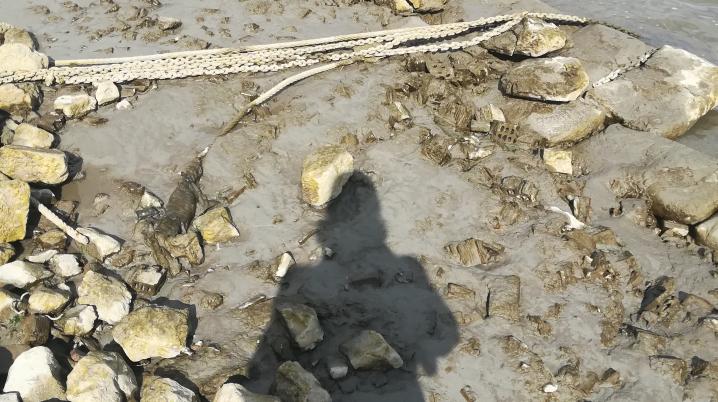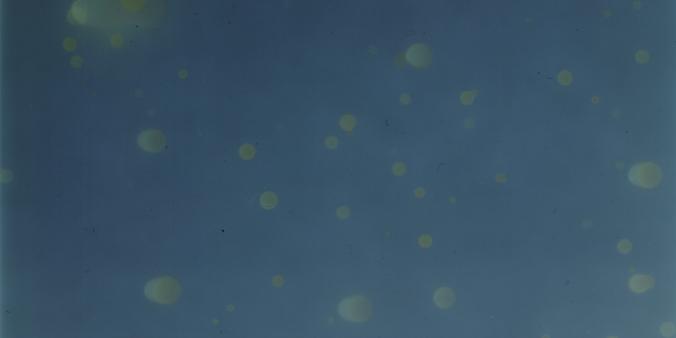
Open Call - HYDROMEDIA 3/3 (Germany)
Polluted oceans and melting glaciers, rainstorms and arid landscapes: all climate change processes are linked to water. Instead of merely documenting the climate catastrophe through documentary photography (and thereby even contributing to a paralysing sense of hopelessness), Hydromedia: Seeing with Water encourages artists to develop new and enticing protocols for rethinking and reshaping the relationship between humans and nature. In collaboration with environmentalists and scientists, new methods and tools are to be created during individual residencies at research sites in Antwerp (BE), Utrecht (NL) and Karlsruhe (DE). Twelve selected fellows will be part of this project co-funded by the E.U. (Creative Europe).
The third artist-in-residence program Hydromedia: Seeing With Water Karlsruhe proposes to sidestep conventional visual approaches to global warming. They invite established artists and designers to submit a proposal to develop innovative and hands-on tools during a one-month residency in April 2024 at the University of Arts and Design (HfG) Karlsruhe and in their own studio in the months after. You may extend an already existing practice or propose to make new work about the theme.
The guiding theme is water and the residency will be multidisciplinary. You explore your preferred angle to this theme within local settings. During the residency, you will also be offered the possibility to collaborate with (or get inspired by) the work of scientists and ecologists around water and ecological water management.
The organisation invites you to explore and develop innovative ways of looking at (or with) water by using analogue and/or digital media. The creative process must be documented and processed into an artistic protocol, so the work will give a wider audience the tools to reimagine their relationship to nature.
The Hydromedia program consists of three residency periods (four selected artists per residency): The Royal Academy of Fine Arts in Antwerp (BE) in April 2023, the Utrecht University of the Arts (HKU) in Utrecht (NL) in October 2023, and the University of Arts and Design in Karlsruhe (DE) in April 2024. Within a few months after each residency, there will
be a small exhibition in the vicinity of the residency location showing the works as developed during and shortly after the residency period.
In fall 2024 the work of all 12 participants will be shown together in a curated group show at the Dresden Museum of Technology and Industry (Germany). This is the open call for the third residency period, at the University of Arts and Design in Karlsruhe (HfG) in Karlsruhe (Germany) in April 2024. Four artists will be selected per residency location. Each artist receives a € 2000 fee, a € 2000 working budget, as well as reimbursement of travel costs. Accommodation and subsistence fees will also be provided.
The area of Karlsruhe (Baden-Württemberg) has a long history of paper production, printing and photography, which are reliant on local water management. But the growing droughts in the Black Forest region (one of the densest forests in Germany) are exacerbating to the point of drinking water shortage, even though it is still commonly known for its mineral and thermal baths and spas. In Baden-Württemberg, there are still only a few rivers in a desirable state. In many places, floodplains have been built up, streams and bends have been straightened or drained, and weirs, dams and barrages often prevent fish from migrating. Regular flooding reveals what the loss of near-natural river courses and floodplains has to do with flooding.
In Karlsruhe, the selected resident artists will work in the upper Rhine area, which is characterised by the valley between the Black Forest and the Vosges. The Rhine is one of the busiest waterways in the world. Its estuaries in the Netherlands reach the North Sea, of which it is the most water-rich tributary. Karlsruhe is adjoining the Upper Rhine area. Underneath it flows an even more powerful stream, which is the largest groundwater reservoir in Europe. Nonetheless, this region suffers increasingly from drought due to the lack of sustainable water management. The resident artists are invited to investigate the reasons for this massive groundwater waste and discuss improvements for a sustainable use and smarter water drainage.
In the Upper Rhine Valley, small rivers full of groundwater rise from springs in the middle of the plain. Around
Karlsruhe, there are numerous quarry ponds that are filled with these ground waters and many arms of the Rhine, which are under nature protection. Through the straightening of the river, many floodplain forests have arisen. With its proximity to this river and its wide valley floor, the summers in the region of Karlsruhe are exceptionally warm. This leads to an unusual, nearly tropical climate, which is favourable for cultivation, but causes high levels of evaporation. What used to be the warmest region in Germany is becoming the hottest region and a climate crisis area. Dehydration as well as the groundwaters are hardly visible, therefore it is even more necessary to highlight these problems within the local communities.
During their stay in Karlsruhe, artists will not only have time to investigate the local water situation, but develop and/or adjust their artistic practice to the site-specific conditions. HfG supplies plenty of workshops and art facilities. The Bio Design Lab at HfG, NABU (Naturschutzbund), ZKM (Center for Art and Media) and KIT (Institute for Technology Karlsruhe) will be close partners in this process to support the residents with information through workshops and lectures. After the residency period, the selected artists will have some time to further develop their work, which will be shown in a local exhibition after the residency period
in July 2024. After that, they will have more time to process the research period and exhibition experiences to prepare for a second exhibition in fall 2024 in Dresden.
Detailed information about the workshops and lectures during the residency period, as well as the local exhibition in Karlsruhe, will be communicated before the beginning of the residency phase. There will be an online meeting, to get to know the co-participants and the Hydromedia project team of Karlsruhe. This date will be organised depending on the availability of the selected artists.
The deadline to apply for the residency in Karlsruhe is set for 30 July 2023, 12:00 CET (noon). Applications after this deadline will not be considered. Please apply via email to [email protected]. Attachments larger than 2MB should be sent via a WeTransfer link or permanent link to an online drive (e.g. google, dropbox, Mega).
Please hand in:
- a description of your Hydromedia project, taking into account the media and tools you will be using as well as the site-specificities of your approach, a letter of motivation (max. 500 words) in which you describe the low-tech tools you want to develop, that will engage a wider audience with the local water problems.
- a portfolio of selected works, your CV and a short bio (max. 200 words)
Applicants will be notified within two weeks after the deadline has closed about the results. You will not receive a receipt of the submitted application.
Conditions of participation:
- You are an active artist residing in an E.U. member state or nation that participates in the Creative Europe program.
- You are fluent in English and able to collaborate with others during the project.
- You are present and active during the entire period of the residency.
- You will be able to present the results of your residency in both the local exhibition and the final exhibition in Dresden in the fall of 2024.
- You are willing to share your working methods with the general public (via the paper
publications that will be launched during the exhibitions) and provide the team with representative documentation for the project’s website and social media before, during and after the residency period. - You are able to attend the opening days of the local exhibitions of the first two stages of the Hydromedia program, in Antwerp on 22 & 23 September 2023 and in Utrecht in mid-February 2024. Travel and accommodation will be provided.


